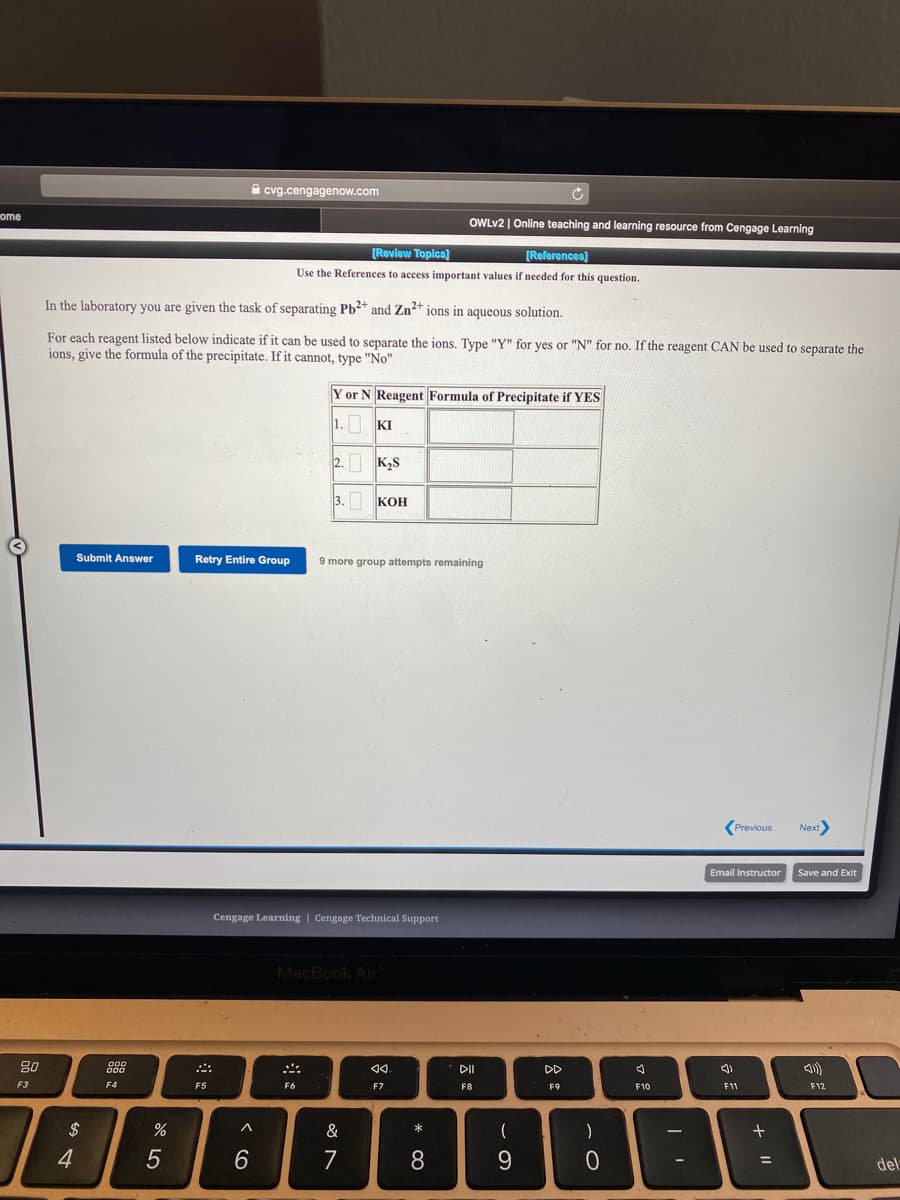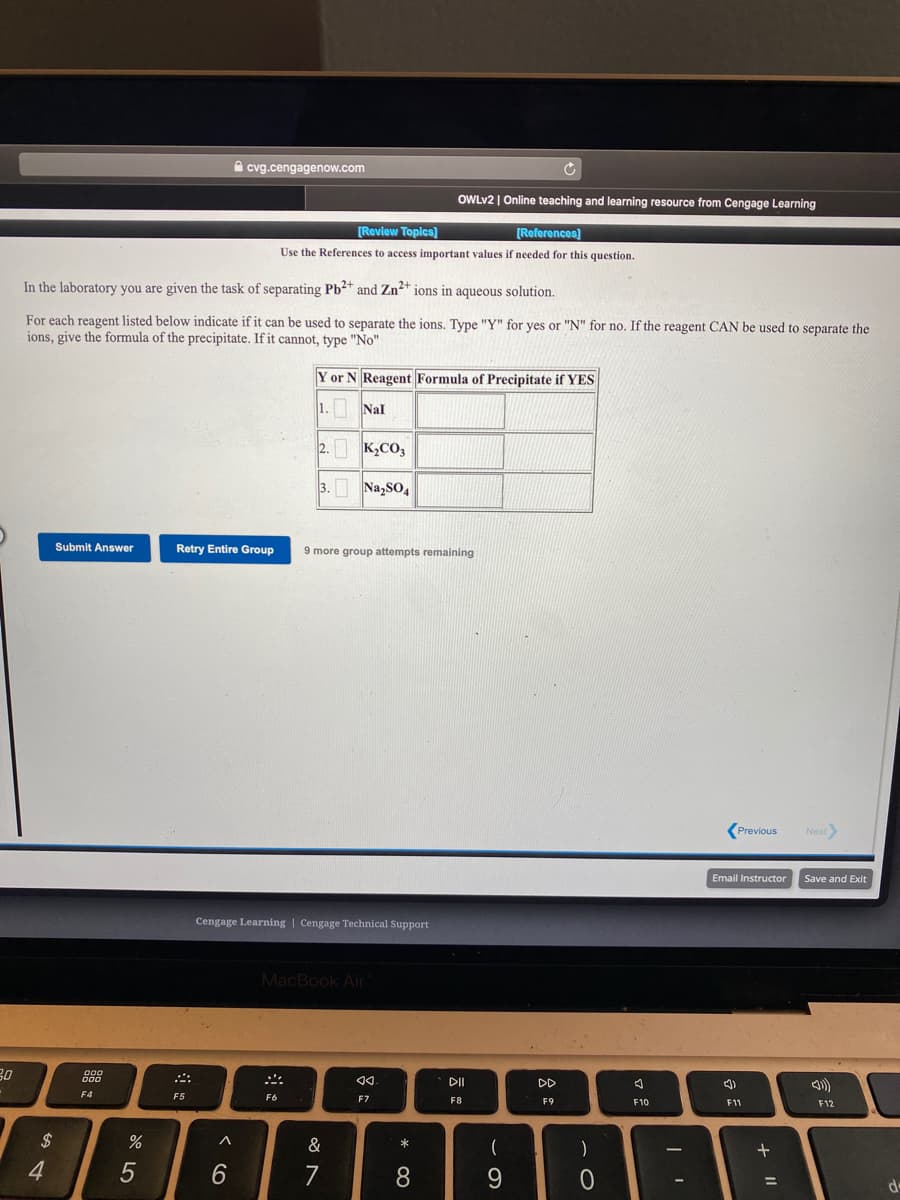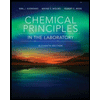OWLV2 | Online teaching and learning resource from Ceng Revlew Topica) [References] es to access important values if needed for this question. and Zn2* ions in aqueous solution. parate the ions. Type "Y" for yes or "N" for no. If the reagent CAN E Ho" Reagent Formula of Precipitate if YES KI K,S кон up attempts remaining
OWLV2 | Online teaching and learning resource from Ceng Revlew Topica) [References] es to access important values if needed for this question. and Zn2* ions in aqueous solution. parate the ions. Type "Y" for yes or "N" for no. If the reagent CAN E Ho" Reagent Formula of Precipitate if YES KI K,S кон up attempts remaining
Chemical Principles in the Laboratory
11th Edition
ISBN:9781305264434
Author:Emil Slowinski, Wayne C. Wolsey, Robert Rossi
Publisher:Emil Slowinski, Wayne C. Wolsey, Robert Rossi
Chapter35: Spot Tests For Some Common Anions
Section: Chapter Questions
Problem 2ASA
Related questions
Question

Transcribed Image Text:A cvg.cengagenow.com
ome
OWLV2 | Online teaching and learning resource from Cengage Learning
[Review Topics)
[References)
Use the References to access important values if needed for this question.
In the laboratory you are given the task of separating Pb* and Zn* ions in aqueous solution.
For each reagent listed below indicate if it can be used to separate the ions. Type "Y" for yes or "N" for no. If the reagent CAN be used to separate the
ions, give the formula of the precipitate. If it cannot, type "No"
Y or N Reagent Formula of Precipitate if YES
1. KI
2. K,S
3. KOH
Submit Answer
Retry Entire Group
9 more group attempts remaining
Previous
Next
Email Instructor
Save and Exit
Cengage Learning | Cengage Technical Support
MacBook Air
80
888
DII
DD
F3
F4
F5
F6
F7
F8
F9
F10
F11
F12
2$
&
(
4.
7
8
9.
del
+ I|
* 00
くo

Transcribed Image Text:A cvg.cengagenow.com
OWLV2 | Online teaching and learning resource from Cengage Learning
[Review Topics)
[References)
Use the References to access important values if needed for this question.
In the laboratory you are given the task of separating Pb2* and Zn2+ ions in aqueous solution.
For each reagent listed below indicate if it can be used to separate the ions. Type "Y" for yes or "N" for no. If the reagent CAN be used to separate the
ions, give the formula of the precipitate. If it cannot, type "No"
Y or N Reagent Formula of Precipitate if YES
1. Nal
2. K,CO3
3. Na,so,
Submit Answer
Retry Entire Group
9 more group attempts remaining
Previous
Next
Email Instructor
Save and Exit
Cengage Learning | Cengage Technical Support
MacBook Air
DII
DD
F4
F5
F7
F8
F9
F10
F11
F12
%2$
&
*
(
4
7
%3D
de
+ I|
* C0
< CO
Expert Solution
This question has been solved!
Explore an expertly crafted, step-by-step solution for a thorough understanding of key concepts.
Step by step
Solved in 2 steps with 2 images

Knowledge Booster
Learn more about
Need a deep-dive on the concept behind this application? Look no further. Learn more about this topic, chemistry and related others by exploring similar questions and additional content below.Recommended textbooks for you

Chemical Principles in the Laboratory
Chemistry
ISBN:
9781305264434
Author:
Emil Slowinski, Wayne C. Wolsey, Robert Rossi
Publisher:
Brooks Cole


Chemical Principles in the Laboratory
Chemistry
ISBN:
9781305264434
Author:
Emil Slowinski, Wayne C. Wolsey, Robert Rossi
Publisher:
Brooks Cole
